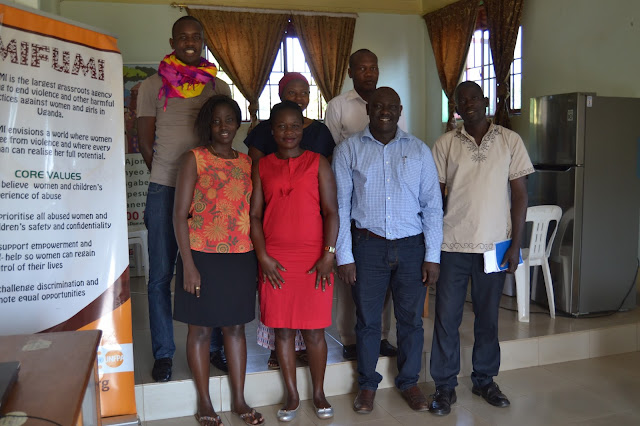This
study on informal justice systems in Uganda was commissioned by World Voices
Uganda. The purpose of the research was to generate a report on the profiles of
existing informal justice models in Uganda as evidence for advocacy for
informal justice policy framework. The study was to further profile the value
contribution of the informal justice mechanisms including the hybrid
alternative dispute resolution models such as the Bataka courts. The objectives
of the study were to:
1. To provide
baseline information on existing informal justice systems/models that enhances
access to justice for the poor.
2. To offer
an in-depth analysis of the linkages between the informal and formal justice in
Uganda
3. To
highlight the value of informal justice systems/models towards access to
justice in Uganda.
4. To provide
evidence based research for advocacy campaign for informal justice policy
framework in Uganda.
Using
mainly a desk research with some high value consultations, the study profiled
three DANIDA category one (traditional, indigenous, customary systems) models;
the mat oput among the Acholi, the Akiriket of the Karamajong and the Bakalhu Babulhambo
of the Bakanzo besides the DANIDA category three (alternative community based
systems), the Bataka courts of Kibaale district.
For
validation purposes the preliminary findings were brought to an informal justice
systems conference organised by World voices Uganda. The participants of the
conference that included relevant stakeholders to justice service delivery such
as representatives of traditional-cultural institutions, practitioners, the
media and donors gave feedback on the preliminary findings and these were
incorporated as well comments received during a stakeholders consultative
meeting. This way the findings were validated by knowledgeable people on the
issues of informal justice systems.
The
findings show that:
Informal
justice systems exist and are resilient inspite of the onslaught of the formal
justice regime and the rise of the state. Due to the prevalence and dominance
of the formal justice system and the rise of the state vis-à-vis the persistence,
relevance and accessibility of the informal justice systems, there are hybrid -
alternative dispute resolution models such as the Bataka courts.
The
study also underscored the need for in-depth study of more and additional
category one (traditional, indigenous, customary systems) justice systems.
There
is still a suspicious relationship between the formal and informal justice
systems but there is need to encourage reasonable compromise and
harmonization between the two. Despite, their recognition in Ugandas JLOS strategic investment plan
111 and under section (15)1 of the Judicature which states that: that customary
Law shall be recognised if not repugnant to the principles of human rights and
equity and if held in good conscience
The
obvious value of informal justice systems to the justice service delivery is
that they are accessible (financially, physically, and psychologically).
Proven to be resilient and heavily relied upon in many African societies
The
report recommends:
1. An
in-depth- extensive and comprehensive research and documentation especially of
traditional, indigenous justice systems in Uganda
2. A
continuous and on-going dialogue between stakeholders
3. An
organised andwell-coordinated campaign and advocacy for a justice framework
that is pro-poor and pluralistic in nature.
4. Firm
stakeholder commitment of resources especially funding.










